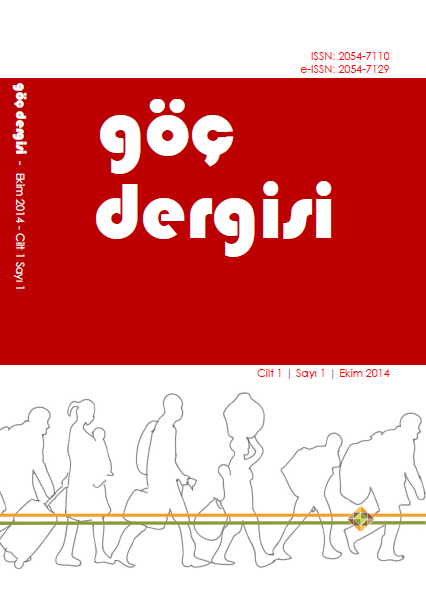Uluslararası göç kuramlarının bir değerlendirmesi
Theories of International Migration: A Review and Appraisal
Author(s): Douglas S. Massey, Joaquin Arango, Graeme Hugo, Ali Kouaouci, Adela Pellegrino, Edward J. TaylorSubject(s): Migration Studies
Published by: Transnational Press London
Keywords: Theoretical studies; literature review; theoretical models; international migration; migration policy; population dynamics;
Summary/Abstract: The configuration of developed countries has become today diverse and multiethnic, due to international migration. A single, coherent theoretical explanation for international migration is lacking. The aim of this discussion was the generation and integration of current theories that clarify basic assumptions and hypotheses of the various models. Theories were differentiated as explaining the initiation of migration and the perpetuation of international movement. Initiation theories discussed were 1) macro theories of neoclassical economics; 2) micro theories of neoclassical economics; 3) the new economics, with examples for crop insurance markets, futures markets, unemployment insurance, and capital markets; 4) dual labor market theory and structural inflation, motivational problems, economic dualism, and the demography of labor supply; and 5) world systems theory and the impacts of land, raw materials, labor, material links, ideological links, and global cities. Perpetuation theories were indicated as network theories of declining risks and costs; institutional theory, cumulative causation through distribution of income and land, organization of agrarian production, culture of migration regional distribution of human capital, and social labeling factors; and migration systems theory. The assumptions and propositions of these theories, although divergent, were not inherently contradictory, but had very different implications for policy formulation. The policy decisions over the next decades will be very important and carry with them the potential for misunderstanding and conflict. Policy options based on the explicated models range from regulation by changing wages and employment conditions in destination countries or promoting development in countries of origin to changing structural market economic relations.
Journal: Göç Dergisi (GD)
- Issue Year: 1/2014
- Issue No: 1
- Page Range: 11-46
- Page Count: 36
- Language: Turkish

